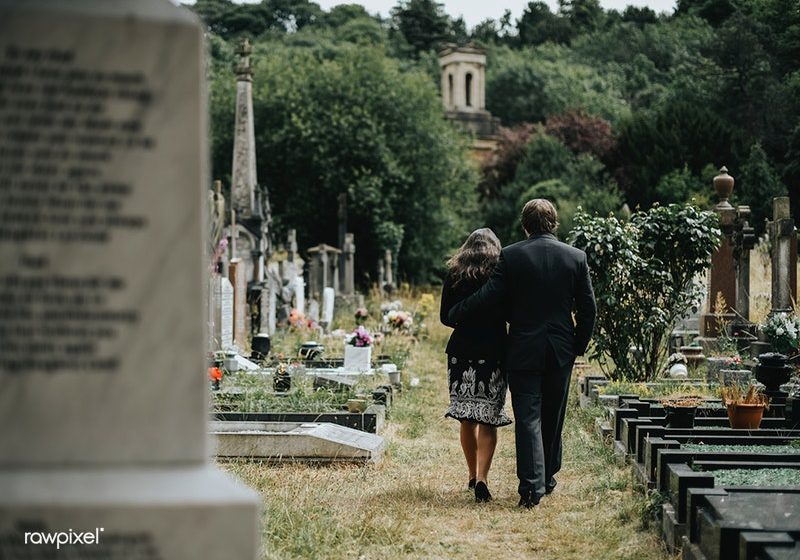Because finding the right words can be very difficult.
By Matt Berical
The death of a parent or loved one is one of the most traumatic moments in a person’s life. It is a wholly transformative event, one that requires time to come to terms with, frequently alters behavior, and sometimes necessitates the editing of the stories adults tell themselves about themselves. And the experience of grief does not end. Mourning continues, in one form or another, for the rest of life. So what do you say to someone who lost a parent or loved one?
There are some common scripts detailing how to respond to the death of someone’s parent or loved one in the public domain. These tend to correspond with different kinds of mortality events. When an older parent dies of natural causes, we say “It was his time.” When a younger parent dies unexpectedly, we ask what we can do to help. But the former response is an invalidation of emotions and the latter represents an avoidance of the topic. In other words, leaning on clichés is a poor approach. All the more reason to identify the core sentiment and work to ensure that conversations or notes or even quick remarks at a funeral succinctly and appropriately communicate it.
So, what’s the correct thing to say to someone whose parent died? There are many potential answers but all are derivative of the same goal: communicating empathy and offering assistance, empathizing with what a person is going through, understanding what a person might need from you, and knowing how to phrase sentiments the right way.
The Sentiment: I understand that you are going through a difficult emotional experience that you yourself don’t totally understand and that the process of mourning is ongoing. I care about your feelings and am here to help you process them or to create space for you to do so by taking other concerns of your plate.
But what does it mean to help a person whose parent has died? What the grieving person often needs from friends and family, according to Carly Claney, PhD, a licensed clinical psychologist in Seattle who often helps clients through grief, is assistance moderating their emotional reactions to a transformative event. “Some people will have a lot of feelings and need some containment and structure around that; others might be more shut off and need help to have their emotions come through a bit more,” says Claney. That can mean giving them an audience, helping them name their feelings, or just providing time and space for those feelings to de-escalate.
The Obstacles: Grief is an incredibly complex emotion. Before you figure out what to say — and what not to say — it’s crucial to consider the experience of grief, which is multifaceted.
- The grieving person has to come to terms with the truth in front of them: That their parent has died. “This takes time to metabolize,” says Claney “And it might be hard for them to believe that it’s real.”
- The grieving person will experience a wave of conflicting emotions. One minute they may genuinely be fine; the next they may be incredibly angry or incredibly sad. “They are going through a complex array of feelings and need to make space for them,” says Claney.
- The grieving person needs to adjust to a world without the parent. And that takes time. “This is especially true for the first year after death, when there are so many holidays and occasions where the person is not there,” says Claney. “They’ll have to really adjust.”
- The grieving person will need to find a way to move on without disconnecting, to come to terms with the fact that life will go on without their mother or father. Again, this takes a great deal of time.
What to Say to Someone Who Lost a Parent
Start with simple, open-ended questions. Anything that begins with “how” or “what” is worthwhile. These sorts of questions don’t communicate expectations or put words into someone’s mouth. They don’t ask the bereaved to behave in a certain way. They empower the bereaved to accept help on their own terms.
Some examples of questions that tend to work:
- “How are you thinking about your dad right now?”
- “What memories are coming to mind about him?”
- “What are you feeling?”
The openness and the invitation of such questions, per Claney, allows those attempting to provide support to communicate an awareness of the bereaved’s internal thinking without taking certain emotional reactions for granted. Responses can vary. A mourning child may be dwelling on a great memory or a nasty remark. They may be dwelling on something they said. It’s all normal and part of a healthy process.
It’s natural to want to offer comfort and reassurance, but ultimately children who have lost their parents need to come to terms with that transformative experience on their own terms.
“The comfort is going to be that you’re sitting, that you’re there to listen and not overwhelmed or scared or put off by them,” says Claney. “And you want to say anything that highlights that you are there and open and present with them.”
Examples of simple phrases to use in these situations are:
- “Tell me more”
- “I’m here.”
- “I want to be in this process with you.”
Any questions that serve to take the burden off someone are also helpful. To that end, remarks should also not require that they engage or, worse, that they take on additional labor at a difficult time. To that end, practical offers like “Can I bring you some food?” should be avoided. Just bring food. If you’re really close, you can ask if Chinese or Mexican would be better. But you probably shouldn’t. The best way to demonstrate a willingness to help is to help.
What Not to Say to Someone Who Lost a Parent
- “It’s going to be okay.” (It’s not.)
- “They’re in a better place now.” (This works in religious communities, but is otherwise inappropriate.)
- “There’s a reason for everything.” (There isn’t.)
- “This will get easier.” (It may, but it also may not.)
- “It’s okay. They lived a long life.” (Moves the focus away from the person experiencing the loss.)
- “We’ll get through this.” (This kind of grief does not end.)
- “What can I do for you?” (This places a burden on the bereaved to suggest an activity of solution.)
One thing to note, per Claney, is that if the bereaved uses one of these phrases, you can and should agree with them. But bringing them up on your own is not the right move.
What to Write in a Card When Someone’s Parent Died
If you can’t attend a funeral or simply want to express additional sentiment, it’s natural to want to send a card. But it’s easy to defer to the obvious. The same rules apply — express sympathies, don’t place a burden on them, let them know that you’re there. Specifics matter. While there’s nothing wrong with writing a simple “I’m sorry for your loss,” it helps to offer a shared memory, joke, or anything that says I’m thinking of you. “You want to say something that acknowledges the distance, which is something that a card is bridging,” says Claney.
The Importance of Following Up
Grief doesn’t end with the funeral. The events that surround a death — the funeral, the burial, etc. — create a sense of community. Friends fly in. Family gathers. It can be overwhelming, sure, but grief is more overwhelming in the absence of distractions. The world spins on and those still mourning feel left alone.
One of the best things you can do for someone experiencing the loss of a parent or loved one is check in on them in the weeks and months afterwards. A call. A text. It could be every couple of weeks, weekly, or more frequent than that depending on your relationship. “Anything that makes them feel that they’re not alone and forgotten.”


